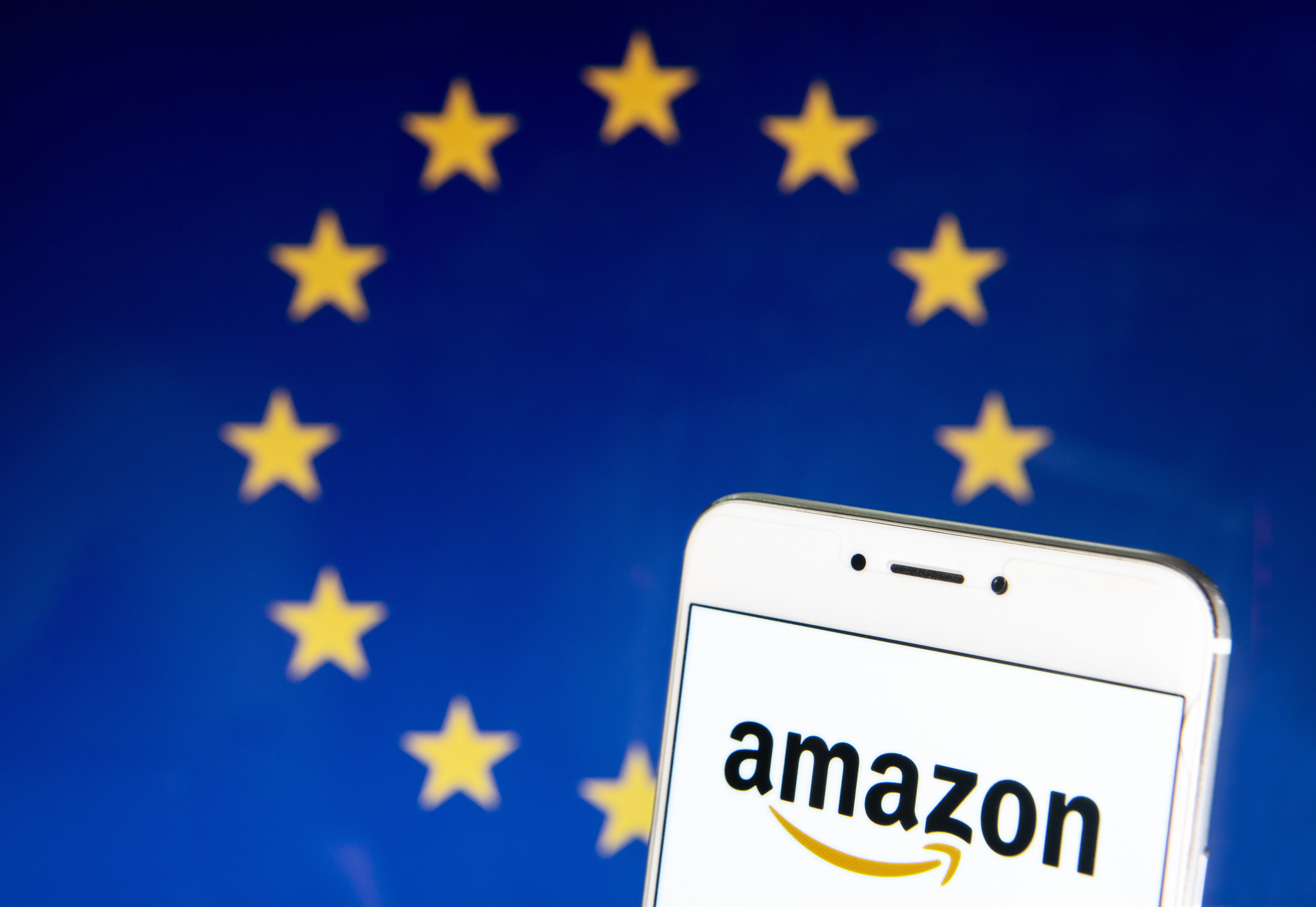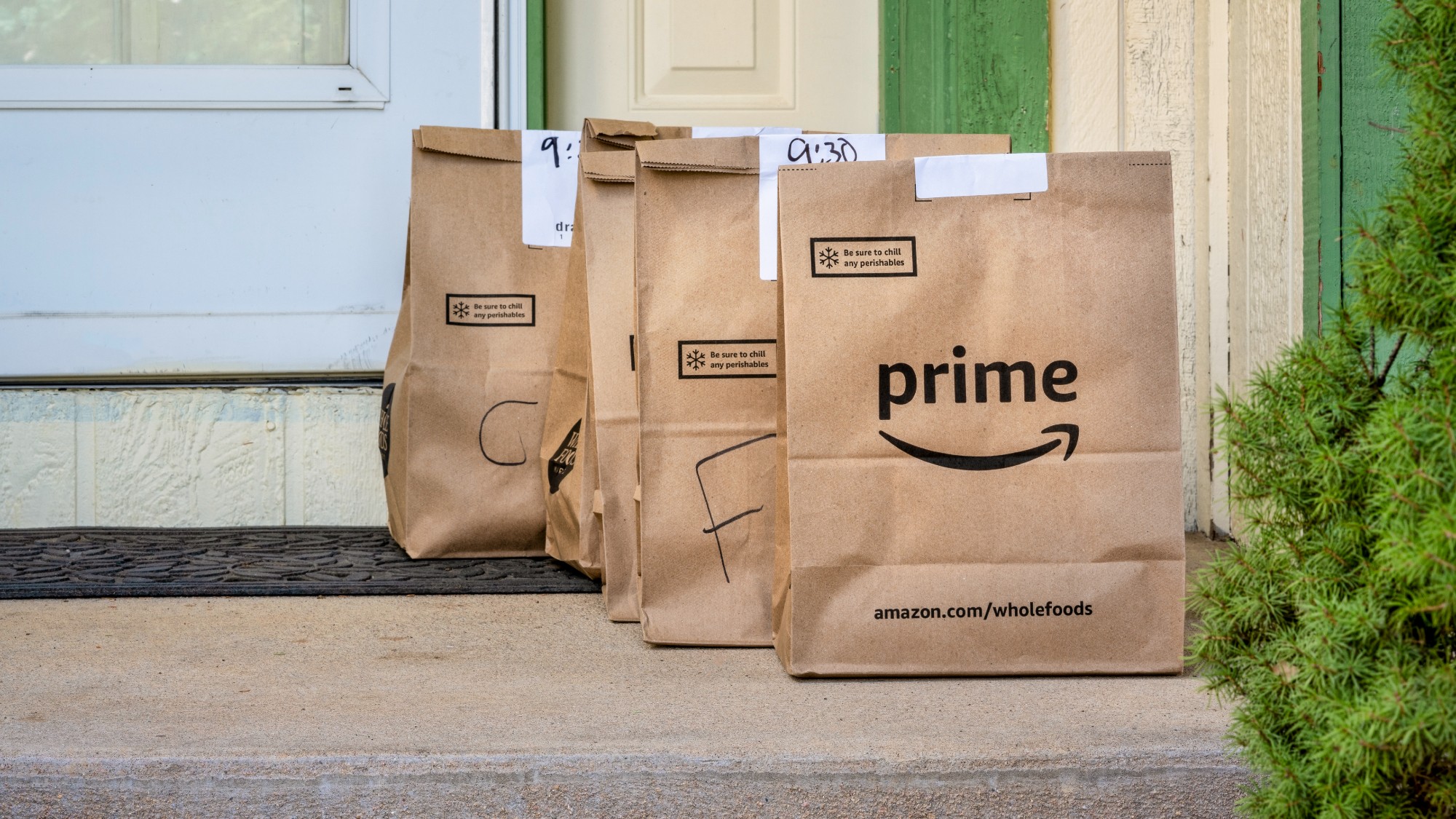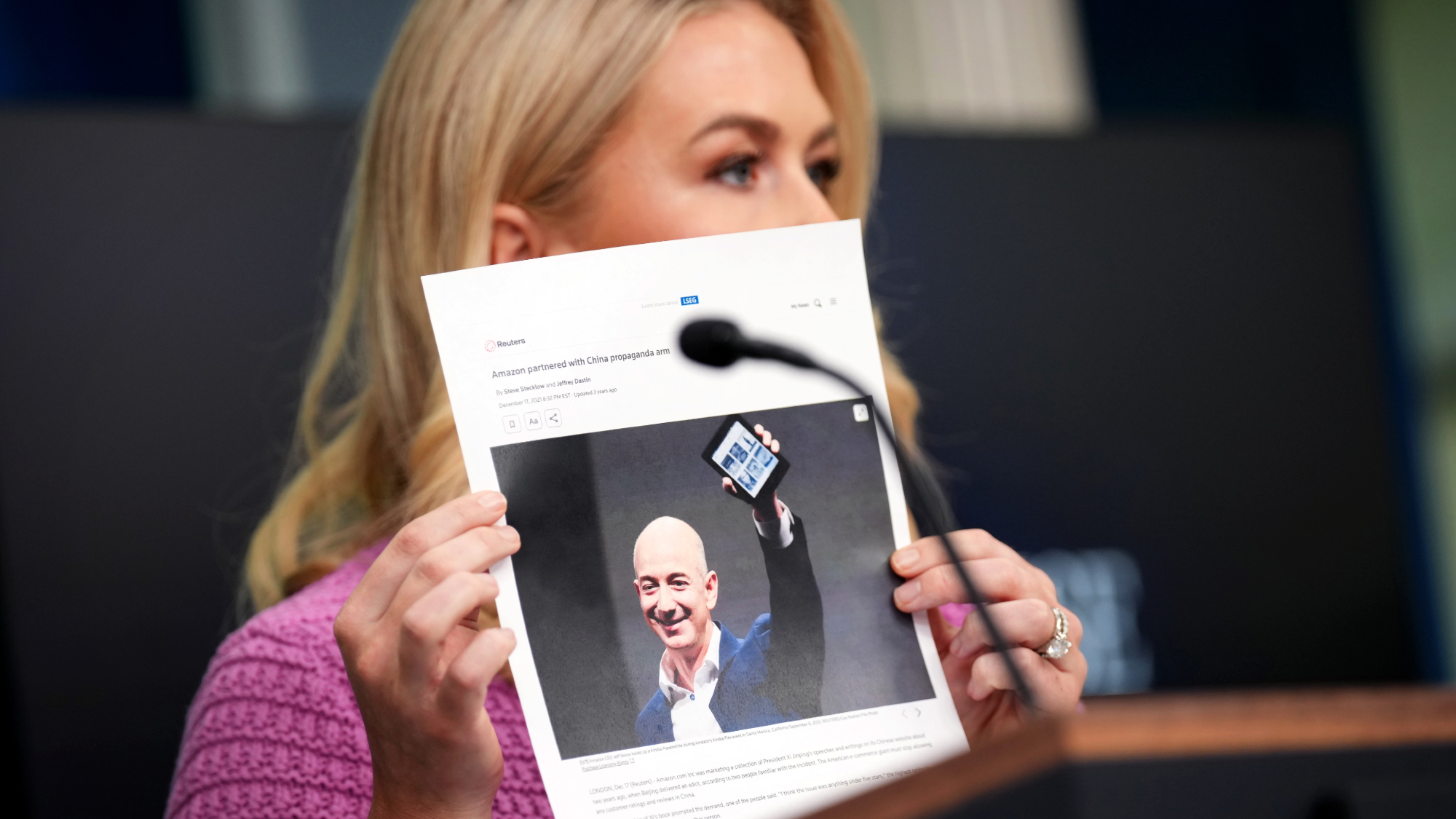European Commission opens Amazon antitrust probe
Brussels wants clarity on whether Amazon undermines competition with its position as both retailer and marketplace


A free daily email with the biggest news stories of the day – and the best features from TheWeek.com
You are now subscribed
Your newsletter sign-up was successful
The European Commission has opened an official investigation into Amazon’s business practices amid concerns the retail giant maintains an unfair relationship with its vast array of third-party sellers.
Commissioner Margrethe Vestager said in a statement that she intended to take a “very close look” at the tension between Amazon’s dual role as retailer and marketplace, to establish if it is in breach of EU antitrust laws.
Vestager, who is in charge of competition policy, said: “European consumers are increasingly shopping online. E-commerce has boosted retail competition and brought more choice and better prices. We need to ensure that large online platforms don't eliminate these benefits through anti-competitive behaviour.”
The Week
Escape your echo chamber. Get the facts behind the news, plus analysis from multiple perspectives.

Sign up for The Week's Free Newsletters
From our morning news briefing to a weekly Good News Newsletter, get the best of The Week delivered directly to your inbox.
From our morning news briefing to a weekly Good News Newsletter, get the best of The Week delivered directly to your inbox.
The Financial Times quotes Andrea Collart, competition partner at Avisa Partners, saying: “It is an important move and a statement against the big tech giants. The feeling is that Amazon is so present in so many markets that it is too big to regulate. Competition enforcement can be the sling used by David to defeat Goliath.”
The Washington Post, which is owned by Amazon CEO Jeff Bezos, says: “While Amazon’s platform has created opportunities for millions of small and midsize retailers globally, it has also given the company a window into which products sell well on the site and at what price.”
It adds: “Many sellers privately complain about Amazon’s power to undercut them on price and to introduce a similar product based on the copious amount of data it collects.”
As well as investigating the standard agreements between Amazon and marketplace sellers, Brussels said it will also examine “the role of data in the selection of the winners of the ‘Buy Box’”.
A free daily email with the biggest news stories of the day – and the best features from TheWeek.com
This is the box on the right side of the product details page where shoppers can click “Buy Now”. For products with multiple sellers, Amazon has an algorithm to determine which one is represented in the box.
“Winning the ‘Buy Box’ seems key for marketplace sellers as a vast majority of transactions are done through it,” the Commission said.
Amazon has said: “We will co-operate fully with the European Commission and continue working hard to support businesses of all sizes and help them grow.”
As The New York Times reports, on Tuesday, “representatives of Amazon, Apple, Facebook and Google were sharply criticized by lawmakers in Washington over the companies’ market dominance”.
At the hearing on Capitol Hill, Amazon’s lawyer, Nate Sutton, rebutted similar accusations as those levelled by Brussels. “The data on popularity of products - like much retail data - is actually public data”, he said at the hearing. “For each of our products, you can see where it’s ranked, how popular it is. We do not use any of that specific seller data in creating our own private brand products.”
In his written statement to Congress, Sutton clarified just how integral to Amazon’s retail business third-party sales have become for the trillion-dollar enterprise. Since 1999, “third-party sales have grown from 3% of the total, to 58% of our total physical gross merchandise sales”.
The setback for Amazon comes after its Prime Day weekend, which it claimed was “once again the largest shopping event in history”. The company revealed that sales from the bonanza surpassed those from last year’s Black Friday and Cyber Monday combined.
William Gritten is a London-born, New York-based strategist and writer focusing on politics and international affairs.
-
 Political cartoons for February 20
Political cartoons for February 20Cartoons Friday’s political cartoons include just the ice, winter games, and more
-
 Sepsis ‘breakthrough’: the world’s first targeted treatment?
Sepsis ‘breakthrough’: the world’s first targeted treatment?The Explainer New drug could reverse effects of sepsis, rather than trying to treat infection with antibiotics
-
 James Van Der Beek obituary: fresh-faced Dawson’s Creek star
James Van Der Beek obituary: fresh-faced Dawson’s Creek starIn The Spotlight Van Der Beek fronted one of the most successful teen dramas of the 90s – but his Dawson fame proved a double-edged sword
-
 The EU’s war on fast fashion
The EU’s war on fast fashionIn the Spotlight Bloc launches investigation into Shein over sale of weapons and ‘childlike’ sex dolls, alongside efforts to tax e-commerce giants and combat textile waste
-
 Is the job market frozen or faltering?
Is the job market frozen or faltering?Today's Big Question Layoffs raise alarms while young workers eye law school
-
 Is Amazon about to take over the grocery business?
Is Amazon about to take over the grocery business?Today's Big Question Expanded delivery will present a challenge to Walmart and Kroger
-
 Is the EU funding Russia more than Ukraine?
Is the EU funding Russia more than Ukraine?The Explainer EU remains largest importer of Russian fossil fuels despite sanctions aimed at crippling Kremlin's war effort
-
 Trump calls Amazon's Bezos over tariff display
Trump calls Amazon's Bezos over tariff displaySpeed Read The president was not happy with reports that Amazon would list the added cost from tariffs alongside product prices
-
 Trump's tariffs: is EU's retaliation the best move?
Trump's tariffs: is EU's retaliation the best move?Today's Big Question Global US levy on steel and aluminium imports has the EU hitting back but the UK keeping options open
-
 What's Jeff Bezos' net worth?
What's Jeff Bezos' net worth?In Depth The Amazon tycoon and third richest person in the world made his fortune pioneering online retail
-
 Amazon's 'James Bond' deal could mean a new future for 007
Amazon's 'James Bond' deal could mean a new future for 007In the Spotlight The franchise was previously owned by the Broccoli family
